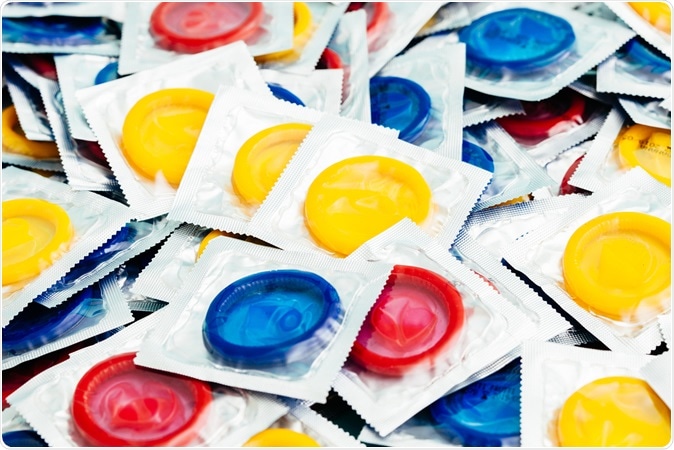The Center for Disease Control (CDC) has warned the general population against reusing condoms after washing. Their tweet comes after a spark of fear of antibiotic resistant sexually transmitted infections.
The experts say that condoms are meant to be used as barrier contraceptives and also protect both sexual partners against sexually transmitted infections such as syphilis, gonorrhoea, chlamydia etc. Reusing condoms after one use by washing them renders them ineffective the experts say.
The CDC tweeted in July, “We say it because people do it: Don’t wash or reuse #condoms! Use a fresh one for each #sex act”. Dr. Elizabeth Torrone, an epidemiologist at the CDC’s Division of STD Prevention explained that reusing condoms is a form of its incorrect use and reusing these reduces their protective effects by causing them to slip, break or leak.

Image Credit: Lemon Tree Images / Shutterstock
Condoms are meant to protect against unwanted pregnancy and STIs and breakage or leakage of condoms cannot protect an individual from any of these she said. Reusing a condom after a wash would also mean putting it on unrolled and wet. This would be anyway be quite a difficult task say experts and is most likely to lead to breakage. The washed condom with its weakened latex may be more likely to tear say experts.
Another reason why used condoms need to be thrown away include emergence and rise of super gonorrhoea infections or gonorrheal infections that are resistant to the commonly used antibiotics. These strains can cause severe illnesses that are difficult to treat and may become potentially lethal.
According to the CDC statistics from 2017 only around one third of Americans use condoms and even fewer use them correctly. An older study from 2012 in the journal Sexual Health found that 1.4 to 3.3 percent of the participants in the study were reusing a condom at least twice during a sexual encounter.
The study from University of Kentucky was a general estimation of the situation among the general population. The CDC data show that there are over two million cases of chlamydia, gonorrhoea and syphilis recorded in 2016 and this makes right condom use even more imperative.
Apart from using condoms for one time sexual encounter, the experts also recommend not storing condoms in wallets and be aware of their expiration dates. Further not more than one condom must be used at a time.